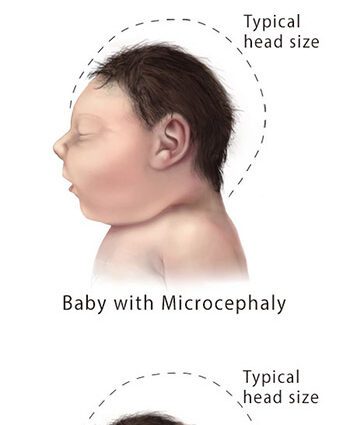There are many different opinions on this matter. We have found the most qualified – the opinion of real experts from medicine.
Although it is the XNUMXst century, people still do not stop believing in omens. Many women, being pregnant, have heard that you cannot wash clothes, eat fish and raise your hands, otherwise the birth will be difficult, and the child will be born with an ailment! But this is pure nonsense, agree ?! There is and there is one more conviction: you cannot look over the baby’s head (he is forced to roll his eyes when they stand behind the baby’s head), otherwise he may become cross-eyed or even see an inverted picture of the world.
“My mother-in-law forbade me to sit at the head of the child so that he would roll his eyes up” – such messages are full of forums for mothers.
“In the first weeks of life, the baby’s motor activity is controlled by reflexes,” says pediatrician Vera Shlykova. – The muscles in his neck are very weak, so the head is often tilted back. It is very important to maintain it, otherwise the cervical vertebrae can be damaged. This can turn into various pathologies, up to torticollis (a disease in which there is a tilt of the head with its simultaneous rotation in the opposite direction. – Ed.). If the baby keeps his relatively heavy head turned out for a long time, the neck muscles may spasm. It must be remembered that only at four months, a child can independently hold his head in an upright position. And at eight months – already boldly turn towards toys. Of course, if he briefly looks up, then nothing terrible will happen. Strabismus will not develop! But at first it is necessary to hang toys over the crib right in front of the newborn at a height of 50 centimeters. “
It turns out that the omen is complete stupidity, but from a medical point of view, forcing a child to look up, trying to literally look behind his head, is really not worth it. He will not become cross-eyed, but other problems may arise.
“In babies, squint is often congenital, – says ophthalmologist Vera Ilyina. – Basically, it can manifest itself due to a disease of the mother, birth trauma, prematurity or heredity. In our practice, we have not yet met that a child, even looking back for a long time, becomes squint-eyed. Another thing is that the eye muscles can “remember” this position of the eyes as correct. Because of which, any pathology of the initial stage can develop. But you should not be afraid of strabismus, since the newborn will not be able to look back for a long time, because he will be dizzy. From discomfort, he will simply turn his gaze to a normal position. “
Even if pathologies do not arise, why should you cause unnecessary inconvenience to the baby? That’s all the omen, laid out on the medical shelves.










